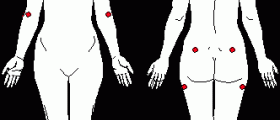Introduction
Chronic daily headache is a term which is used for any type of headache which occurs frequently, at least every two days over periods of six months or more. Chronic headaches are also characterized by migraines and the use of painkiller for at least half of the aforementioned time span. Chronic tension-type headaches involve tension-type headaches and no migraines. It is of utmost importance to get a specific accurate headache diagnosis on order to determine a proper treatment plan according to the severity and type of headache.
The proper diagnosis has a direct influence on all the long term management goals, type of recommended medications and the type of medical tests that need to be run. It is also of vital importance to match the belief of one’s headache type to an accurate diagnosis. Incorrect diagnosis may be very harmful as it may lead to worsening of the existing condition. If a person believes that the diagnosis is incorrect, he or she may distrust the treatment, which may lead to further complications. Diagnoses and treatment plans are based on physical and neurological exams, history of the illness, light sensitivity, visual changes, sensitivity to noise, various different pain characteristics and accurate total of any days with headache in an average mount and accurate durations of headache which did and did not involve any treatment. The history of the illness is very important because the patterns of the symptoms tend to change over time.
Common risk factors
Various different types of risk factors can be held responsible for the exacerbation of episodic headaches and lead to the development of chronic headaches. Some of them can be modified while some others cannot. The most common factors include medication overuse, stress, sleep disturbance, obesity and caffeine. Medication overuse is the most common risk factor of headache progression. Headaches may progress into chronic headaches due to overuse of triptans, over the counter analgesics, prescribed analgesics, opiates, ergotamine, caffeine, and especially caffeine combined with analgesics.
Stress is also one of the harmful factors known for triggering headaches. If not managed properly it may lead to the development of chronic headaches. Chronic headaches may also develop due to various different types of sleep disturbances. The most common sleep disturbances associated with chronic headaches include snoring, poor quality sleep, difficulty staying asleep, difficulty staying awake and insomnia. Obesity may also be the risk factor in some cases of chronic headaches.

















Your thoughts on this
Loading...